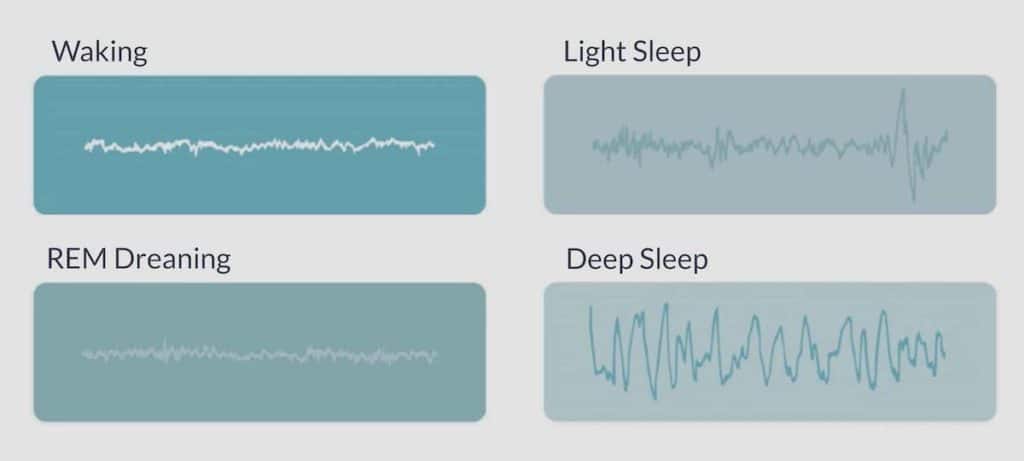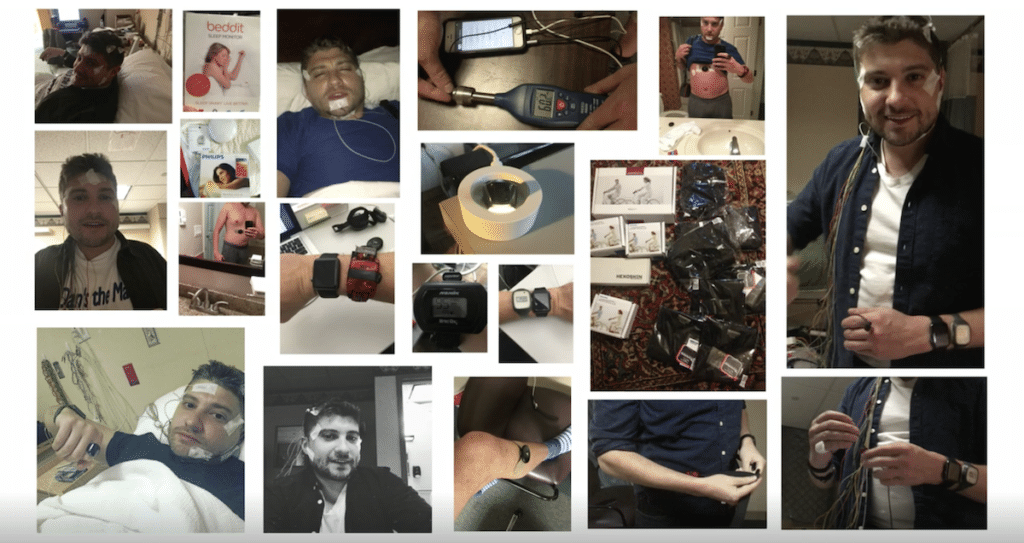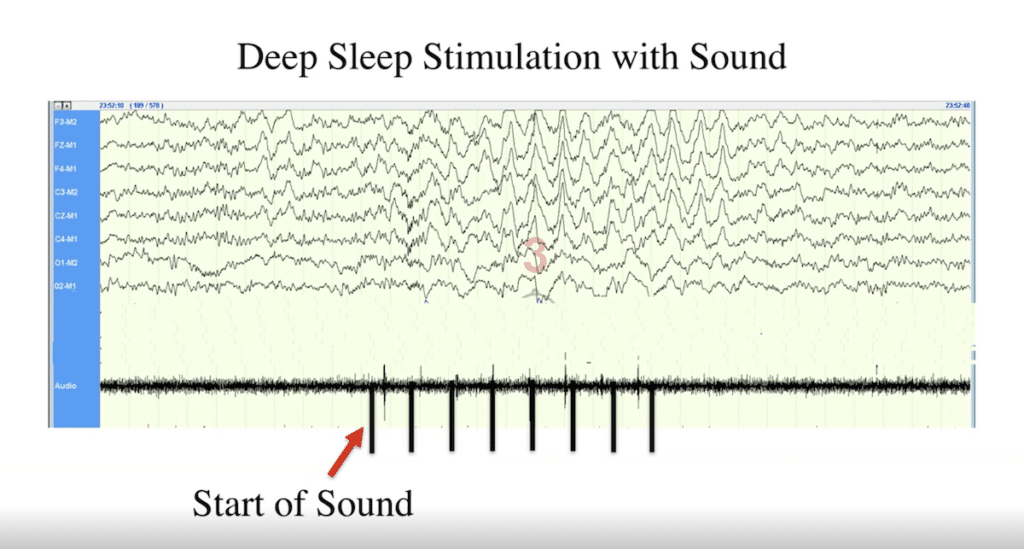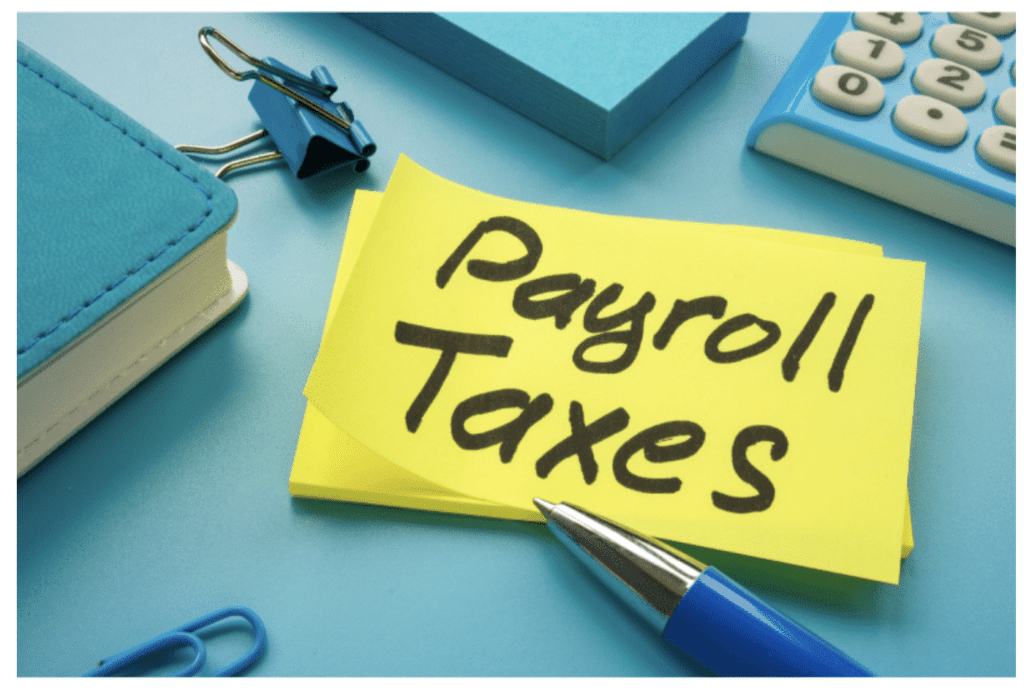A Conversation with Dan Gartenberg
Research has found that between 33-45% of Australians aren’t getting enough sleep. Unfortunately, that means we’re a nation of individuals prone to experiencing serious problems associated with sleep deprivation, like fatigue and hypertension.
To understand why this is and what the medical profession can do about it, we spoke to Dr. Daniel Gartenberg, a sleep researcher who holds a PhD in human factors and applied cognition, whose been studying the subject of sleep for over a decade.
About Dr Dan Gartenburg
Dr. Gartenberg’s interest in the field of sleep began in college. During his senior year at the University of Wisconsin, he and his team created an alarm clock app that they entered into an engineering competition. During the course of that app’s creation, Gartenberg realised two things. First, he needed to learn more about sleep if he was going to really solve sleep-related problems. Secondly, he loved delving into the subject.
Gartenberg says, “What always excited me about this topic is that sleep is literally the human behaviour that we do the most of. Theoretically, if you could improve that human behaviour, even a small amount, it would have massive health implications for our global wellbeing.”
So, after earning his bachelor’s degree, Gartenberg went on to earn his PhD in cognitive psychology where he focused on building models of how people sustain attention over long periods of time. Most recently, Gartenberg used his knowledge of sleep research to create a sleep-related app called Sonic Sleep.
What is the Sonic Sleep App?
Initially, the Sonic Sleep app was designed to measure sleep by placing your phone onto your bed at night. However, once Gartenberg discovered that the method of sleep tracking was a little too inaccurate for his liking, he pulled the app from the market.
He knew that sleep algorithms required some type of wearable technology for accuracy that measured motion and heart rate directly. While wearable technology wasn’t too prevalent at the time, Gartenberg knew that the release of the Apple Watch would make sleep tracking easier to measure.
Subsequently, the Apple Watch led to the Sonic Sleep app being ‘reborn’. The app offers cognitive behavioural therapy for insomnia, sleep hygiene tips, deep sleep stimulation, and pink noise, to help users experience steadier, deeper sleep. Recently, the sleep detection app, which utilises the Apple Watch and where Dr. Gartenberg’s research team is working towards more accurate sleep detection than wrist-based competitors, including Fitbit and Actiwatch Spectrum.
Ideally, Gartenberg says, the objective is to provide very specific user feedback. “We think that if we collect 5 nights of data from people on our system, we can very accurately determine what’s going on and give them personalised feedback on actionable things they can do to improve their sleep.”
Ultimately, Gartenberg believes that this is the wave of the future. Rather than people having to go to sleep labs to get feedback on their sleep, with the right tools, they can have their sleep monitored at home.
But the possibilities don’t end there. Gartenberg also imagines an ‘internet of things’ future where gadgets create the right sounds and lighting to make sleep more restorative. In fact, this is the direction he sees his own work going in. He feels this type of work is very important, because he knows just how detrimental sleep deprivation can be for people.
The Impacts of Sleep Deprivation
Sleep deprivation doesn’t just affect people’s emotional health, it also affects their overall physical health and wellbeing. For instance, Gartenberg reports that it’s been associated with cardiovascular issues, like increased hypertension.
Additionally, he explains, “Longitudinal studies have shown that if you go untreated for sleep apnea — which negatively impacts your sleep quality — you’re likely to have your life expectancy decreased by 5 years. [Sleep deprivation] has also been associated with increased rates of Alzheimer’s disease. There is real causal evidence that [sleep deprivation] hinders your immune system.”
He also mentions the link between pain sensitivity and sleep deprivation. “Something that I find really interesting is that there is some evidence that you’re more sensitive to pain when you’re sleep deprived. So we’re actually starting to look into the idea that maybe instead of prescribing opioids to people when they have chronic pain, you can actually address their sleep quality and show better outcomes than some of these drugs.
“That’s the big vision that I have for my company — to show that this new technology can be used to deliver real-time interventions that promote positive behavioural change. We think we can eventually get better outcomes than things like Ambien, anti-anxiety drugs, and even opioids — but without all the harmful side effects of these medications.”
The Benefits of Deep Sleep
While sleep deprivation has been shown to have adverse effects on insomniacs, what about deep sleepers? Are they experiencing some type of benefit from heavy sleep?
Before answering that, we should probably categorise what the actual stages of sleep are. Interestingly enough, the answer depends on where you live and what you use to measure brain waves. In the United States, there are often 4 recognised stages of sleep. By contrast, there are often 5 stages of sleep in Europe and Australia.
Gartenberg explains this distinction by saying, “We all agree that there is REM, which is something that is easy to detect and that has clear indicators. But the other stages are really a gradient and its total arbitrary. The distinction is mainly the percentage of brain waves that look like delta waves.

Pictured: The 3 main stages of sleep: light, REM and deep sleep
“Deep sleep, which is signified by slower delta brain waves and dreamless sleep, has the benefit of being associated with memory consolidations and synaptic downscaling”. Gartenberg explains that while sleep has long been credited as being necessary for energy consolidation and cell recovery, a third theory has emerged called the synaptic homeostasis hypothesis.
“It’s basically the idea that during the day we form all these connections based on our interactions with our environment… and during night time, deep sleep essentially down-regulates these connections so that the things that are most relevant to our survival rise to the top.”
“So, it used to be like, don’t go in that part of the rainforest because predators are there. That’s really the thing that you have to remember. Now it’s like, how many likes did I get on Instagram?
“Part of the issue I think right now is that there is so much information out there, it’s hard for our brains to sort out what’s relevant and what’s not. But that’s actually what this theory is all about — that during sleep you down-regulate your daily memory experience, such that the things that are more relevant to your survival rise to the top. Then during REM sleep when you’re having these intense dreams, you are consolidating, replaying, building new connections and making sense of all those things that are relevant to your survival,” Gartenberg explains.
The Noise that Induces Deep Sleep
On his journey to find a way to get a deeper night of sleep, Dan tried almost every consumer and clinical-grade gadget, gizmo and hack he could find. He even shifted his own circadian component by changing the times of his meals, exercise and light exposure.

Pictured: A snapshot of Dan’s exploration to get a better night’s sleep
Still he struggled to improve the amount of deep sleep he was receiving. That was until he met Dr. Dmitry Gerashchenko from Harvard Medical School. Dmitry told Dan about a new finding discovered by a lab out of Germany who showed that if you played a certain sound at the right time in a person’s sleep, you could actually make sleep deeper and more efficient, and that you actually could improve next-day memory performance.
Gartenberg says, “We just got this abstract accepted into Society for Neuroscience where we actually show that we can play deep sleep stimulating sound to increase the percentage of time people spend in deep sleep.”

Above: A pictorial map of the sound’s effect on the brain, inducing deep sleep
This is especially exciting because in the past, researchers could only achieve this by ‘zapping’ the brain with low levels of electricity. Now, invasive electrodes are no longer necessary, and it’s possible to stimulate deep sleep by sound alone.
However, this technique comes with a caveat. Gartenberg says that you have to use just the right volume for it to be effective. “It’s sort of like a tightrope walk because if you play the sound too loud it will wake the person up and their sleep will not be as regenerative as it was if you didn’t play anything at all. But you have to play it loud enough for the brain to respond to it”, he explains.
Other Tips for Getting a Good Night’s Sleep
There is no one-size-fits-all approach when it comes to sleeping, Gartenberg reports. “There are a lot of people suffering from insomnia with their racing thoughts, sometimes it’s circadian-related, sometimes it’s hot flashes for menopause, sometimes I’ve even seen a traumatic brain injury cause difficulties in falling into and staying asleep.
“Trauma, PTSD, night terrors — they are other things that can affect sleep… really the problem is that it takes at least 30 minutes with someone to really understand what’s going on where you can start suggesting behaviours that are actually targeted at them to improve their situation,” Gartenberg says.
However, in the absence of a cognitive behavioural consult, he does recommend a few main things. First, insomniacs should make sure they’re exposed to sunlight during the day. If that isn’t possible, they should get a 10,000 LUX light that simulates sunlight. This helps to better regulate the release of melatonin and induce a more normalised circadian rhythm.
Gartenberg also suggests that people are more likely to get a better nights rest if they don’t use an alarm clock. If that isn’t possible, he says, “The right way to wake up is very gradually. [In the Sonic Sleep app] we actually start the sound almost imperceptibly and then ramp it up very gradually over a 10 minute period.”
Finally, Gartenberg says that sleep-deprived individuals should keep their bedroom at a comfortable temperature. If their sleep partner likes to sleep in a warmer or cooler room, they should look into some of the sleeping solutions available on the market today, like cooling body pads.
Gartenberg doesn’t recommend drugs like Ambien for insomnia. He actually believes that although prescribing drugs to insomniacs is understandable, it’s not a very beneficial practice for patients. “A lot of the time drugs, like Ambien, help people perceive that they are falling asleep faster but it also negatively impacts sleep quality.
“It also comes with all these addictive aspects to it and prescribing it to elderly people can often result in them falling at night, breaking their hip etc.”
Tips for People Who Want More Information About Sleep
If you’re interested in sleep research — or you just want to help your patients get a better night’s sleep — there are plenty of valuable resources out there. Specifically, you can direct your patients to a sleep specialist, recommend the Sonic Sleep app, or suggest they check out the Sleep Disorders Australia website. Sleep Disorders Australia is a non-profit organisation that provides resources and tips for people having difficulty sleeping.
Finally, if you wish to stay up-to-date on the exciting sleep research Dr. Daniel Gartenberg is doing, please visit his website at http://danielgartenberg.com.


